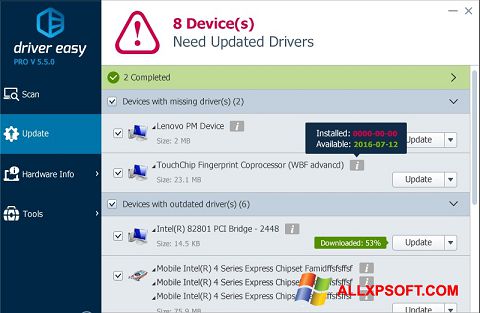
MP3 GAIN 64BITS 64 BIT
If you want to buy a Raspberry Pi 64 bit in these times of crisis, we advise you the rpilocator site, which monitors the availability of several vendors, including the main French licensed reseller, Kubii. We can only hope that the release of the official 64 -bit version will soon benefit Raspberry Pi OS -derived distributions, such as OSMC, which turns a Raspberry Pi into a multimedia player with Kodi, or RetroPie, which turns a Raspberry Pi into a console. Indeed, these computers have a 64 -bit architecture since the Raspberry Pi 3 in 2016, but the foundation still sells and produces the first Raspberry Pi. The foundation says it wants to maximize compatibility between its different models. The 64 -bit version will therefore remain reserved for a more enlightened public, who will think to choose the right version, who probably already knew that there were 64 -bit Linux distributions for Raspberry Pi, such as Ubuntu, Manjaro or DietPi. Unfortunately, Raspberry Pi OS 32 bits remains the version proposed by default by Raspberry Pi Imager, the official operating system installation software for Raspberry Pi. Credit: Raspberry Pi The 32 bits make the resistance

The Raspberry Pi Zero 2 W for $ 15 is compatible with 64 bits. The two updates certainly improve the comfort of those who use a Raspberry Pi 4 as a computer (for example).
MP3 GAIN 64BITS UPDATE
It had benefited from the Raspberry Pi OS update (formerly Raspbian) to Debian 11 Bullseye to bring the CPU frequency of the latest Raspberry Pi 4 hardware revision from 1.5 to 1.8 GHz (+20 %). The foundation had offered another power boost in November. These miniature computers are not fuses, so any performance gain is perceptible and welcome.

The gain is for example 16 % for the rotation of an image, 30 % for encoding an MP3, 13 % for Python language execution and 54 % for PHP.

It thus revealed that the latest Raspberry Pi 400 with 4 GB of live memory was 48 % more performing on average with a 64-bit Raspberry Pi OS than a 32-bit Raspberry Pi OS. Phoronix, which publishes performance testing automation software, last week conducted a series of tests to measure gains. The transition from 32 to 64 bits allows a single process to use more than 3 GB of live memory, but it promises in particular a performance gain. After a very long testing phase (the beta is out in May 2020!), The Raspberry Pi foundation finally released on February 2 the official 64 bit version of Raspberry Pi OS.


 0 kommentar(er)
0 kommentar(er)
